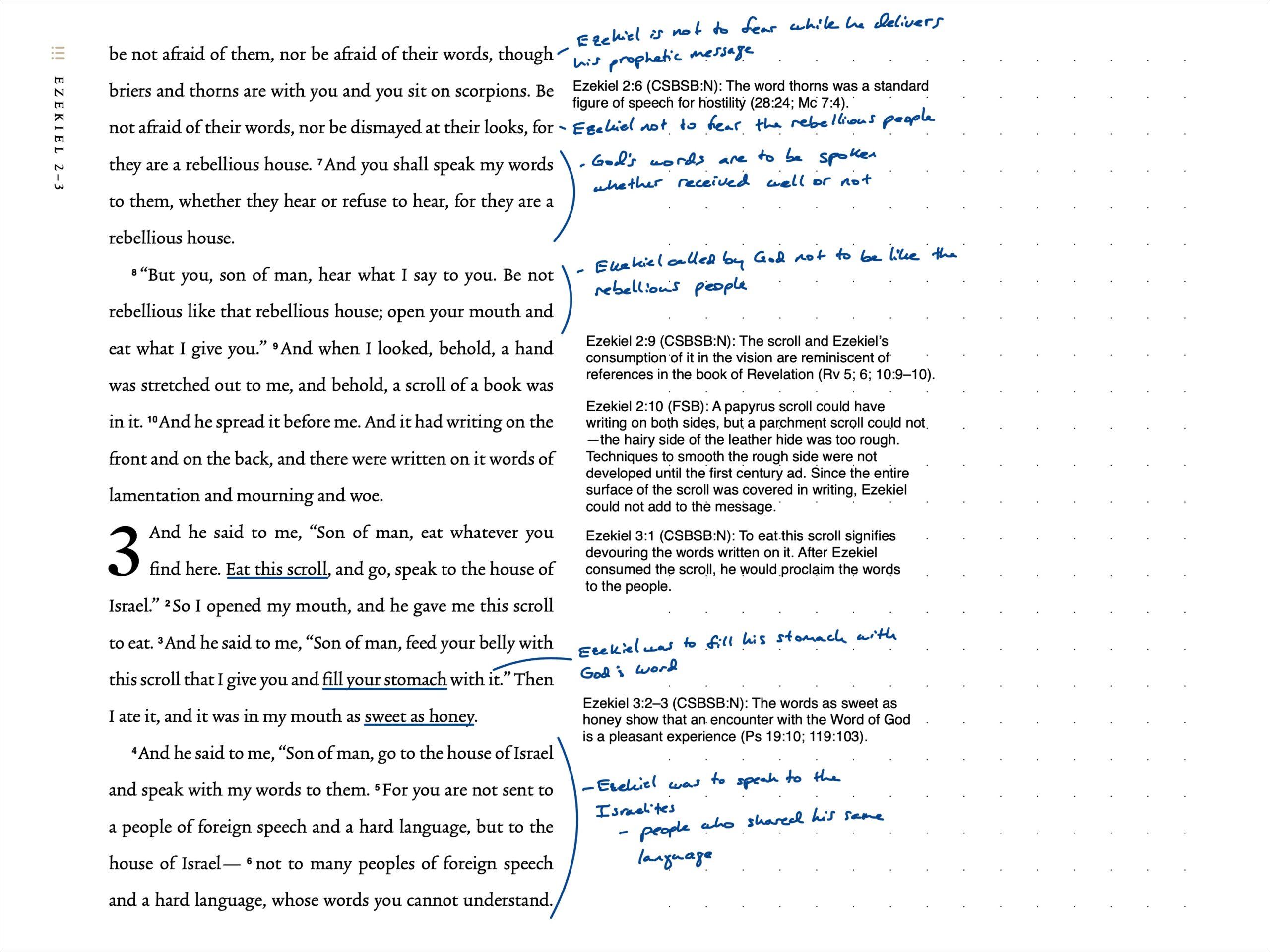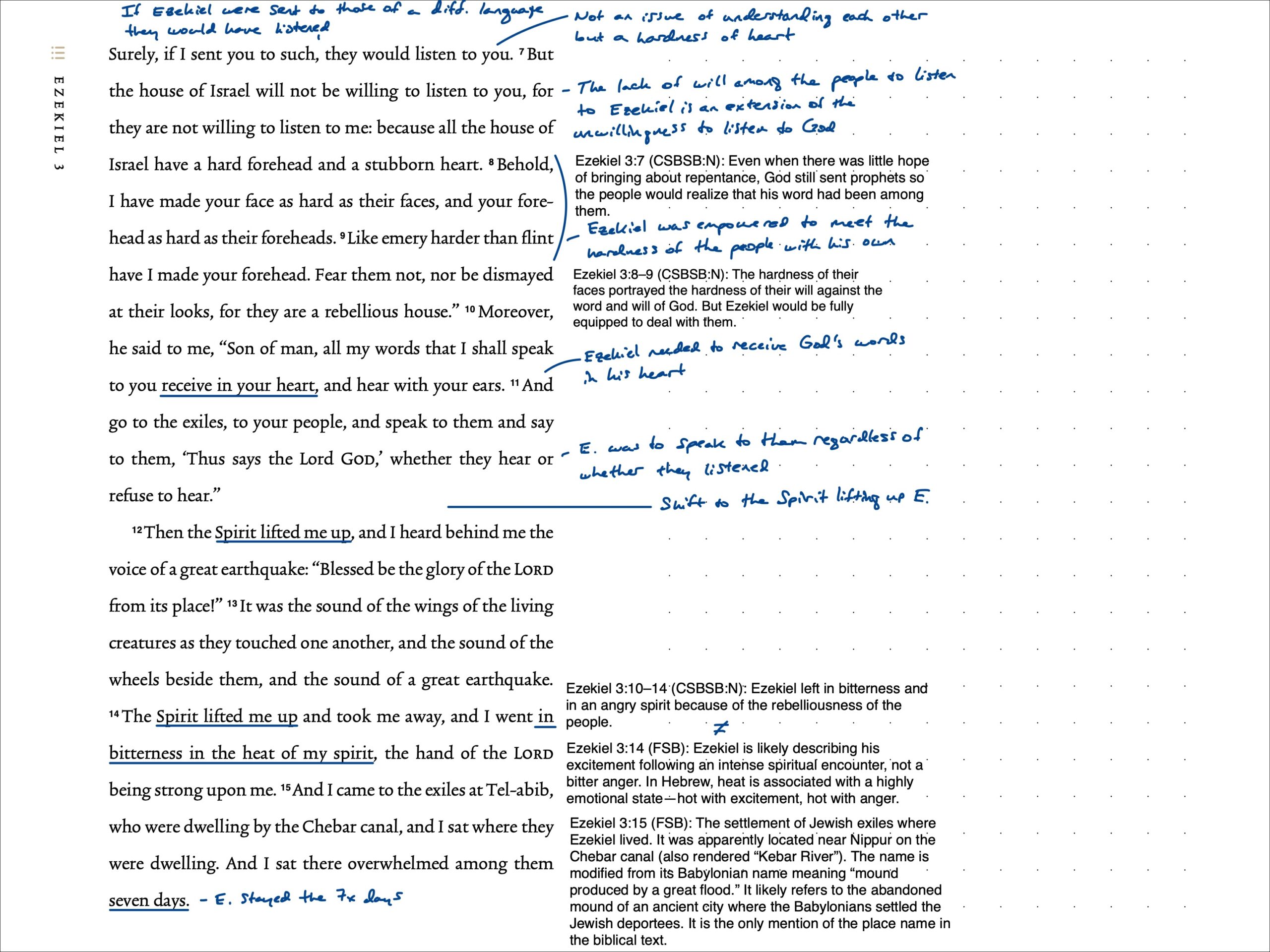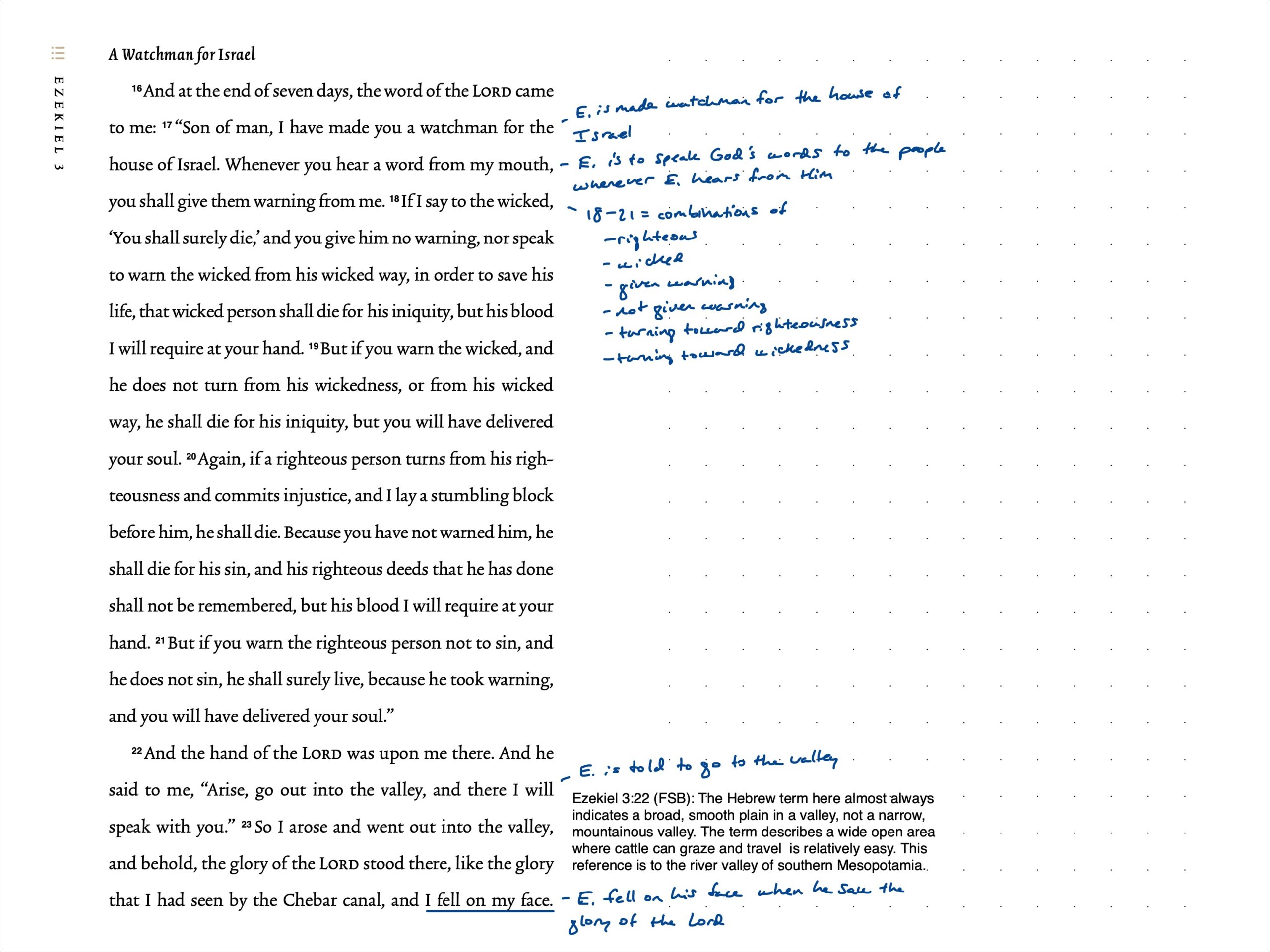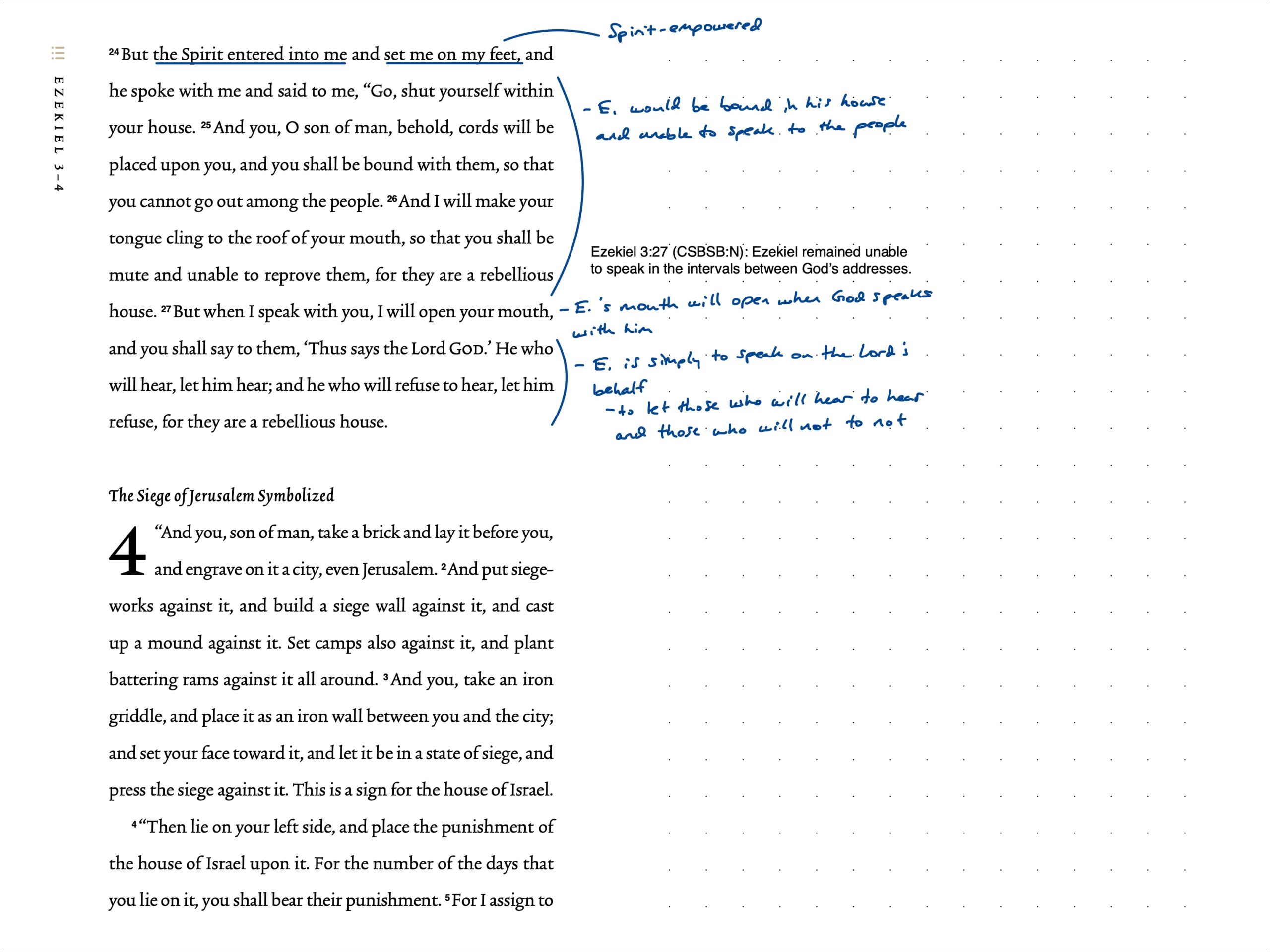| Date | Version | Reading Plan |
|---|---|---|
| @August 23, 2023 | ESV (2016) | ESV Prophets Plan 2023 |
Pericopes
- Ezekiel’s Call
- A Watchman for Israel
Notes
The chapter opens with Ezekiel’s eating of the scroll God had given to him. To eat the scroll signifies devouring the words written on it. After consuming the scroll, Ezekiel would proclaim the words to the people. As he ate it, Ezekiel describes it as “sweet as honey”, showing that the encounter with the Word of God was a pleasant experience (Ps. 19:10; Ps. 119:104).
Ezek. 3:4-11 is of Ezekiel’s commission to speak God’s words to the Israelites, a people who shared his language and not a people of foreign speech. If Ezekiel had spoken to those of foreign speech, they would have listened to him (Ezek. 3:6). As it were, he was to address those who would clearly perceive him and yet not listen. This demonstrated that it was not a lack of understanding but a hardness of heart. However, Ezekiel would be empowered by the Lord to meet their hardness with his own, fully equipping him to deal with them (Ezek. 3:9). He was to receive God’s words in his own heart and speak to the people regardless of whether they heard or refused (Ezek. 3:10-11).
In Ezek. 3:12-15, Ezekiel is lifted up by the Spirit first to hear the “voice of a great earthquake” (the glory of the Lord) (Ezek. 3:12-13) and also to be taken to exiles at Tel-Abib (Ezek. 3:15). Ezek. 3:14 says that Ezekiel “went in bitterness in the heat of my spirit” which could be in response to the rebelliousness of the people or describing his excitement of his spiritual encounter. In Hebrew, heat is associated with a highly emotional state—hot with excitement or anger. Ezekiel “sat there overwhelmed among them seven days” (Ezek. 3:15).
In Ezek. 3:16-21, Ezekiel is made watchman over the house of Israel. Ezekiel was to speak whenever he heard words from God’s mouth. Ezek. 3:18-21 describe combinations of the righteous and the wicked, whether Ezekiel gave them or withheld warning from them and whether they responded favorably or rebelled.
In the remaining verses (Ezek. 3:22-27), Ezekiel is told to “go out into the valley”. This was most likely a reference to the river valley of southern Mesopotamia. When there, he encountered the glory of the Lord and fell on his face (Ezek. 3:23), but the Spirit entered into him and stood him on his feet (Ezek. 3:24). Ezekiel was to be bound in his house and unable to speak to the people except when spoken to by God who would open his mouth (Ezek. 3:27). Ezekiel was God’s spokesman and to say to them, “Thus says the Lord God” whether they heard or refused to hear.
Application
Ezekiel eats the scroll, “sweet as honey” to the taste and is given clear instruction on his prophetic ministry. He was to address the “house of Israel” and not “a people of foreign speech and a hard language”, but in doing so would actually face more opposition than if his assignment was for the other nations. This points to an important Biblical theme and one relevant to our modern walk.
Many who deny Jesus have access to all of relevant and intelligible information. They are given clear and decipherable evidence and yet still disbelieve. This is as true today as it was in centuries before. I think of Matt. 13:54, where Jesus was rebuffed by his hometown people while teaching in the synagogue. He knew them and could speak clearly to them, and yet they “took offense at him” which led to Jesus not doing many works there (Matt. 13:57).
It is not a matter of clarity or evidence. It is a matter of the heart and whether one has been prepared by the Spirit to receive the word of truth that Jesus is Lord and Savior of all creation. However, much like Ezekiel, we are called to lovingly speak this truth to others whether they have or have not been given ears to hear. This is our commission to declare the Lord’s name, without reserve or restraint, to the ends of the earth.
Scripture Journal Notes
Commentaries & Resources Used
- ESV Study Bible. (Wheaton, IL: Crossway, 2008)
- Faithlife Study Bible (Lexham Press, 2016)
- Believer’s Bible Commentary (Thomas Nelson, 2016)
- CSB Study Bible Notes (Holman Bible Publishers, 2017)
- Matthew Henry’s Commentary on the Whole Bible (Guardian Press, 1976)
- The Bible: A Reader’s Guide (Sterling Publishing, 2011)
- The Infographic Bible (Zondervan, 2018)
- ESV Digital Scripture Journal (Crossway, 2019)



